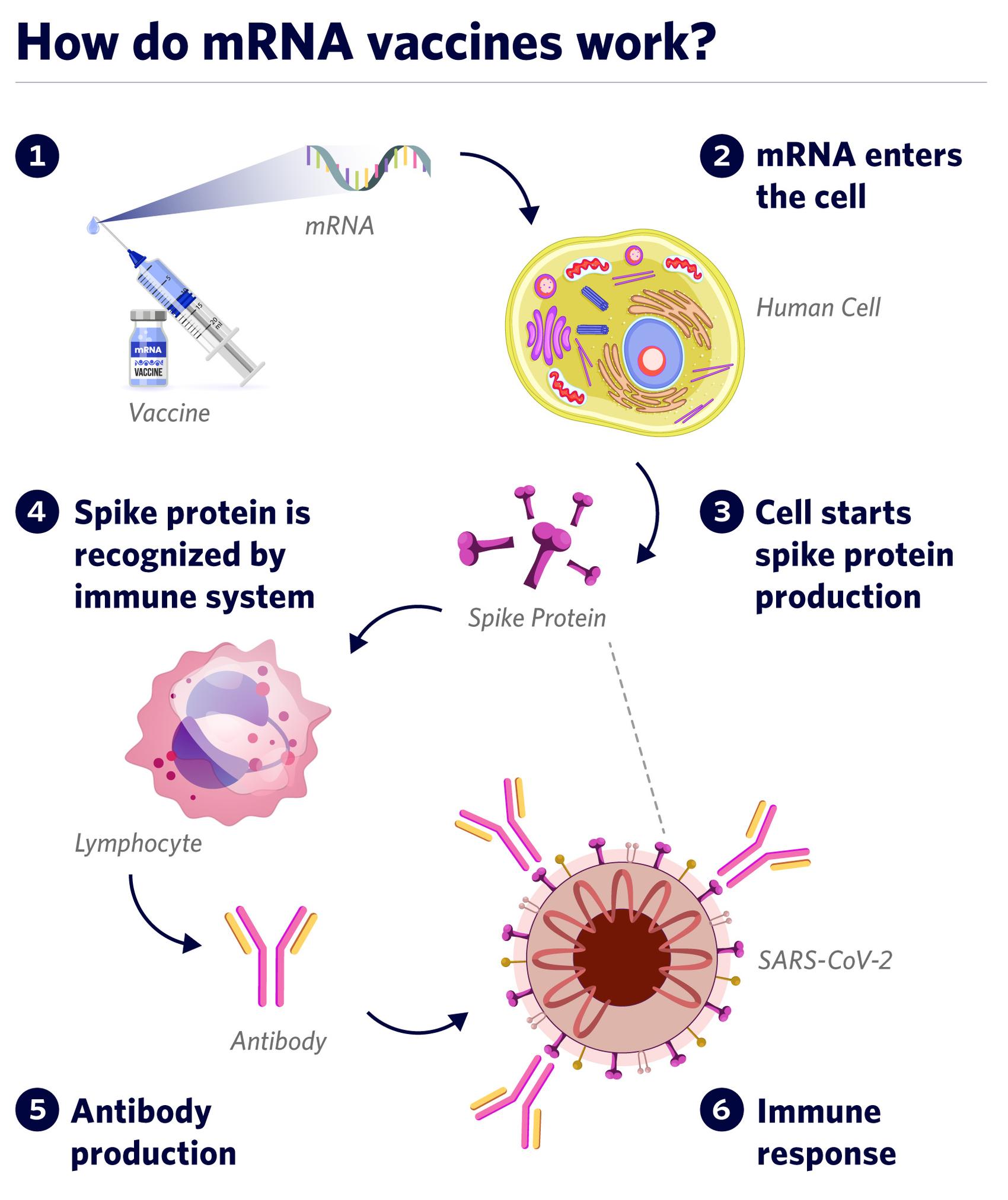How vaccines work
By Carolyn Ali

A UBC vaccine expert answers your questions
The University of British Columbia’s Dr. Anna Blakney researches RNA vaccines at UBC’s Michael Smith Laboratories & School of Biomedical Engineering. Every day, she fields questions about vaccines from her 211.3K followers on her TikTok channel.
Below, Dr. Blakney answers some common questions, in a nutshell.
How do vaccines work?
“With any vaccine, what we’re trying to do is train your immune system to recognize a certain protein that it’s never seen before, usually a protein on the surface of the virus,” says Dr. Blakney.
Proteins are molecules that perform certain functions inside you. Vaccines give cells instructions to make these proteins, so that your immune systems will recognize them. “If your body ever sees COVID, your body will recognize it and knows how to neutralize and kill it,” she explains.
Dr. Blakney studies RNA vaccines, also known as messenger RNA (mRNA) vaccines. RNA stands for ribonucleic acid. It’s found in all the cells in your body, and it’s your cells’ way of taking DNA instructions and figuring out what proteins to make.
“As long as we know the protein we need to encode in the RNA, we can make a vaccine against anything,” Dr. Blakney says. That includes viruses like the flu and COVID-19. “We just type that code into software and make RNA out of it.”
Once your body recognizes that protein, it produces antibodies against it. That leads to an immune response against the virus.

What should I consider when deciding whether I should get vaccinated?
“The first thing to consider is risk: what is your risk of getting the virus and what is your risk of side effects if you do get the virus?” says Dr. Blakney.
Since we’re still in a pandemic, the risk of contracting the virus is high. And if you did get the virus, the risk of potential side effects may be significant. “We don’t yet have a great understanding of the long-term side effects of COVID-19,” Dr. Blakney says. “Many people are fine in the short term, but in the longer term we’re seeing prolonged loss of taste and smell and long-lasting effects on the heart and lungs.”
People who have had a severe allergic reaction to vaccine ingredients in the past, and some individuals who are immune compromised, should not get the vaccine. Speak to your GP about your specific risk factors and consult ImmunizeBC for information on safety, allergies and side effects.
Learn more: Protection provided by COVID-19 vaccination
Carolyn Ali is a writer for UBC’s Brand and Marketing. This article was published March 5, 2021.
Feel free to republish the text of this article, but please follow our guidelines for attribution and seek any necessary permissions before doing so. Please note that images are not included in this blanket licence.